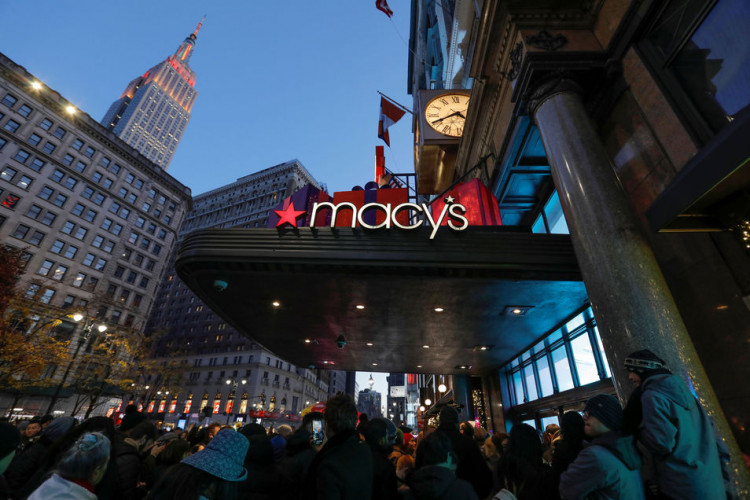American luxury department store chain Macy's now looks to offers shoppers unique items from its private brands and a unique shopping experience as it struggles to stave-off more losses and store closures in its fight against online retailing.
The company famous worldwide for its annual Macy's Thanksgiving Day Parade in New York City held since 1924 is turning to its private labels in a bid to stay relevant in a retail industry now dominated by online sellers led by Amazon.com.
It plans to have its private brands comprise 25% of sales by 2025, and will grow four of its best in-house private brands to be worth $1 billion each by that time. The favored brands are INC International Concepts Clothing, Alfani, Style & Co., and Charter Club.
Getting to this goal will see Macy's revamp its private labels with the goal of offering customers unique items they can't find anywhere else. About a fourth of Macy's sales come from its top national brands such as Ralph Lauren and Calvin Klein. Macy's is responding to customer demands for
"We're already well on our way," said Patti Ongman, Macy's chief merchandising officer to investors at the New York Stock Exchange. "Private brands are already among our highest margins, but we continue to find ways to improve. We're building new sourcing and supply chain capabilities."
The upbeat news to investors follows a depressing announcement Tuesday Macy's will keep restructuring its business by closing more of its department stores and firing employees. Macy's revealed plans to close another 125 stores over the next three years. This number includes store closures announced on January 8 that include 29 underperforming stores. Macy's also announced the firing of 2,000 employees or 10 percent of corporate and support staff.
Macy's is also implementing exciting innovations it hopes will get more people to visit its stores. Macy's announced it will open at least five "Market by Macy's" and seven freestanding Macy's Backstage locations by the end of 2020. Market by Macy's is small-format locations around 15,000 sq ft in area.
In November 2018, Macy's announced it will begin testing smaller "neighborhood" stores to slash costs and promote innovation designed to regain customer loyalty. It's also testing a new concept that will take it out of malls (which are less frequented by shoppers) by opening smaller stores in strip centers or mini-malls where more people shop.
"Our goal is to reclaim and revitalize what a department store should be," said Macy's CEO Jeff Gennette. "Department stores are still vital if they are done right. There is viability to having many categories and brands under one roof."





